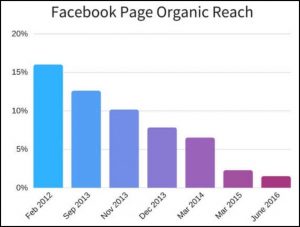 After spending nearly two years with a company — as an intern turned full-time employee — you decide it’s time for something new. You attempt to update your resume with the skills and experience gained during your time as an intern and entry-level employee, when you realize there isn’t much to update.
After spending nearly two years with a company — as an intern turned full-time employee — you decide it’s time for something new. You attempt to update your resume with the skills and experience gained during your time as an intern and entry-level employee, when you realize there isn’t much to update.
But, you might want to think twice before changing “assisted” to “led.”
According to a 2014 CareerBuilder survey, 58 percent of hiring managers said they’ve caught a lie on a resume, from embellished skills (57 percent) and responsibilities (55 percent) to dates of employment (42 percent) to job title (34 percent).
And half of the 2,188 employers surveyed said they would automatically dismiss a candidate if they caught a lie on their resume.
Making entry-level experience appeal to hiring managers can be tricky. After all, there’s only so much you can accomplish in a starter role. Fortunately, there are a number of ways to describe that role so it attracts hiring managers’ attention — without stretching the truth.
Here are four things worth mentioning to better describe — and boost — your entry-level experience:
1. How you helped achieve organizational goals.
Whether you’re a seasoned employee or a student intern, the work you do contributes to the overall mission and vision of the company. So, instead of simply listing your day-to-day tasks, describe how your work helped your organization inch closer toward achieving its goals.
Hiring managers don’t care as much about the fact that you helped out with your company’s social media efforts. What they do care about is how your assistance with social media helped further your company’s goal of building brand recognition by doubling the amount of followers on corporate social accounts.
What to write: Improved brand recognition by assisting with social media efforts on corporate accounts and doubling the amount of followers.
2. Who you worked with.
As an entry-level employee, you probably worked closely with a number of people — people who can vouch for your skills and capacity for teamwork. Make a list of people you regularly worked with or reported to and describe those relationships on your resume.
Mentioning who you worked with (by their title, not their name) on your resume not only shows hiring managers that you’re a team player, but also provides them with potential references. If you had the opportunity to interact and work with clients firsthand, that’s also a great resume-booster, as it shows your ability to communicate with clients and meet their needs.
What to write: Worked closely with graphic designer to create a number of original, visually-appealing infographics.
3. What your supervisor said.
Keep track of the praise and recognition you receive while on the job, as it can be useful when it comes time to hit the job boards. While you don’t want to quote your managers’ praise word for word on your resume, there are subtle ways to use what your superiors said to reinforce the skills and traits that make you a top-notch employee.
If you want to take it a step further, ask your supervisor to endorse or recommend you on a social professional network, like LinkedIn.
What to write: Recognized by supervisor for ability to regularly meet and exceed quarterly sales goals, which contributed to overall sales initiatives.
4. Your results in numbers.
You’ve heard it before: numbers or it didn’t happen. Hiring managers don’t just want to know what you did from 9 to 5; they want to know what you accomplished in those eight hours. If your social media efforts resulted in an increase in followers and engagement by 50 percent, say so.
As an entry-level employee, those numbers may not always be very high. If that’s the case, focus on quantifying your duties. Saying you drafted an average of two original articles a day on behalf of your clients, for instance, shows what you’re capable of getting done during the workday.
What to write: Drafted an average of two original, engaging pieces of content a day on behalf of clients, including blog posts, newsletters, and whitepapers.
What are some other ways to describe entry-level experience on your resume to help you land a job?
Business & Finance Articles on Business 2 Community(151)
Report Post







